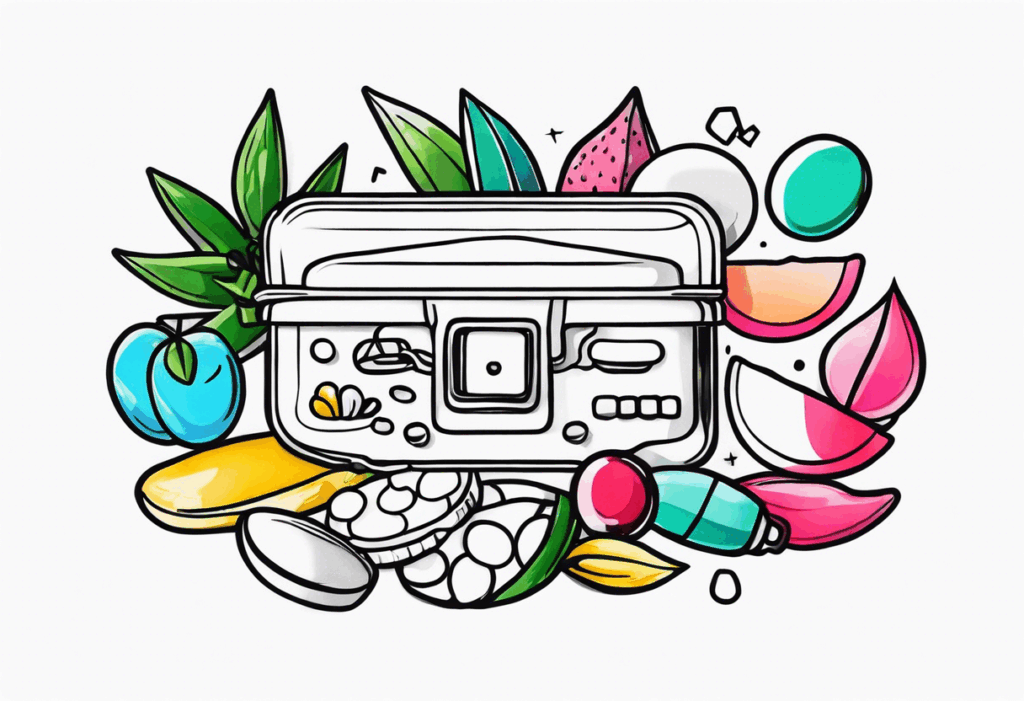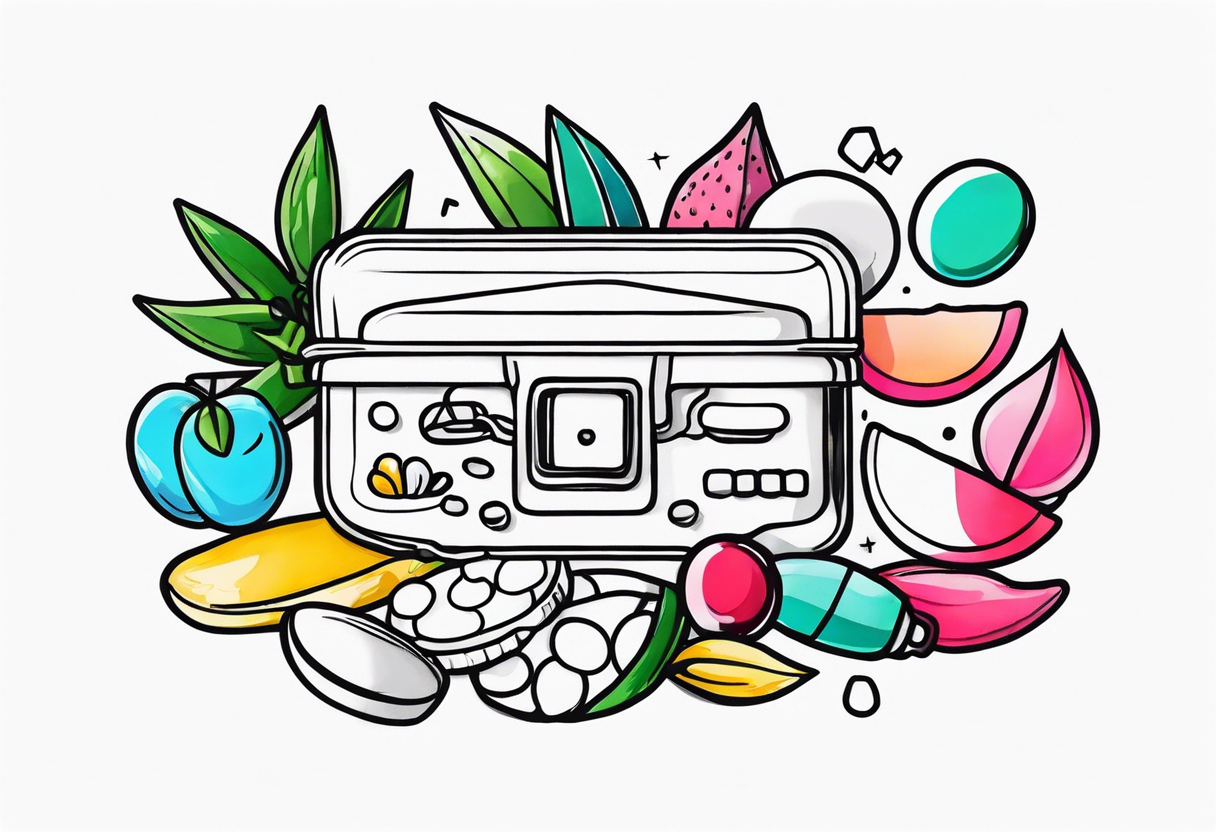
Drug Tattoos Designs: Exploring the Controversial Art and Symbolism
The world of tattoos is vast and varied, encompassing everything from delicate floral designs to bold, intricate sleeves. Among the more controversial and often misunderstood categories are drug tattoos designs. These tattoos, which depict various drugs, paraphernalia, or related imagery, can carry a complex web of meanings and motivations. This article delves into the world of drug tattoos, exploring their symbolism, the reasons people choose to get them, and the potential consequences and societal perceptions surrounding such body art.
Understanding the Allure of Drug Tattoos
Why would someone choose to permanently ink their skin with images related to drugs? The reasons are multifaceted and deeply personal. For some, a drug tattoo design serves as a reminder of a past struggle with addiction, a symbol of survival, and a testament to their journey towards recovery. It can be a powerful way to reclaim their narrative and visually represent their resilience.
Others may get drug tattoos to commemorate a loved one lost to addiction, acting as a memorial and a way to keep their memory alive. In this context, the tattoo becomes a poignant tribute and a symbol of enduring love.
Still others may choose drug related tattoos for purely aesthetic reasons, drawn to the imagery associated with certain drugs or subcultures. This could stem from an appreciation for the artistic style or a desire to express their affiliation with a particular group or lifestyle. However, such choices often come with significant risks and misunderstandings.
Common Drug Tattoo Designs and Their Meanings
The specific imagery used in drug tattoos designs varies widely, reflecting the diverse range of substances and experiences associated with them. Some common motifs include:
- Marijuana Leaf: Often associated with relaxation, freedom, and a counter-culture lifestyle. However, it can also be seen as a symbol of rebellion and defiance.
- Needles and Syringes: These stark images often represent the darker side of addiction, symbolizing the physical and emotional pain associated with intravenous drug use. They can also signify a past struggle with addiction and a commitment to sobriety.
- Pills and Capsules: Representing prescription drug abuse or a reliance on medication, these designs can be a reminder of the dangers of addiction or a symbol of overcoming dependency.
- Skulls and Bones: Often paired with drug-related imagery, skulls and bones can represent the deadly consequences of drug abuse and the fragility of life.
- Specific Drug Names or Logos: Some individuals choose to tattoo the names of specific drugs or the logos of pharmaceutical companies, often as a form of rebellion or to express their identity within a particular subculture.
- Lighters: Often associated with smoking, lighters can represent the act of lighting a cigarette or other substance and can symbolize addiction or a rebellious lifestyle.
The Controversy Surrounding Drug Tattoos
Drug tattoos are inherently controversial due to their association with illegal and harmful substances. They can be seen as glorifying drug use, promoting addiction, and disrespecting those who have lost their lives to substance abuse. This perception can lead to negative judgments, social stigma, and even discrimination.
Furthermore, drug related tattoos can create problems in professional settings. Employers may view these tattoos as a sign of irresponsibility or instability, potentially hindering career opportunities. In some cases, individuals with visible drug tattoos may face prejudice from law enforcement or other authority figures.
Navigating the Decision to Get a Drug Tattoo
Choosing to get a tattoo is a deeply personal decision, but it’s crucial to carefully consider the potential implications of a drug tattoo design. Before getting inked, ask yourself:
- What is my motivation for getting this tattoo?
- What message am I trying to convey?
- How might this tattoo be perceived by others?
- Could this tattoo negatively impact my personal or professional life?
It’s also essential to choose a reputable and experienced tattoo artist who understands the potential sensitivity surrounding drug tattoos. A skilled artist can help you refine your design and ensure that it accurately reflects your intentions. They can also advise you on the best placement for your tattoo to minimize potential negative attention.
Alternatives to Drug Tattoos
If you’re drawn to the symbolism and imagery associated with drugs but are concerned about the potential negative consequences of a drug tattoo, consider exploring alternative ways to express yourself. You could:
- Create art that explores your experiences with addiction or recovery.
- Write poetry or prose about your journey.
- Engage in advocacy work to raise awareness about substance abuse.
- Talk to a therapist or counselor to process your emotions and experiences.
The Importance of Context and Intent
Ultimately, the meaning and impact of a drug tattoo depend on the context and intent behind it. While some may view these tattoos as symbols of rebellion or glorification, others may see them as powerful expressions of survival, remembrance, or personal transformation. It’s crucial to approach these tattoos with sensitivity and understanding, recognizing the complex and often painful experiences that may lie behind them. The individual’s story is what truly gives the drug tattoo its unique and often poignant meaning.
Conclusion: Drug Tattoos as a Reflection of Complex Narratives
Drug tattoos designs are a controversial form of body art that reflects the complex and often painful realities of addiction, recovery, and loss. While they may be met with judgment and misunderstanding, they can also serve as powerful symbols of resilience, remembrance, and personal transformation. Understanding the motivations and meanings behind these tattoos requires sensitivity, empathy, and a willingness to look beyond the surface. Before deciding on a drug tattoo, it is essential to consider the potential consequences and ensure that the design accurately reflects your intentions and personal story. Ultimately, the decision to get a drug related tattoo is a personal one, but it’s crucial to make that decision with awareness and understanding. [See also: Addiction Recovery Tattoos: A Symbol of Strength] [See also: Tattoo Removal Options: Erasing the Past] [See also: The Stigma of Addiction: Overcoming Societal Barriers]

